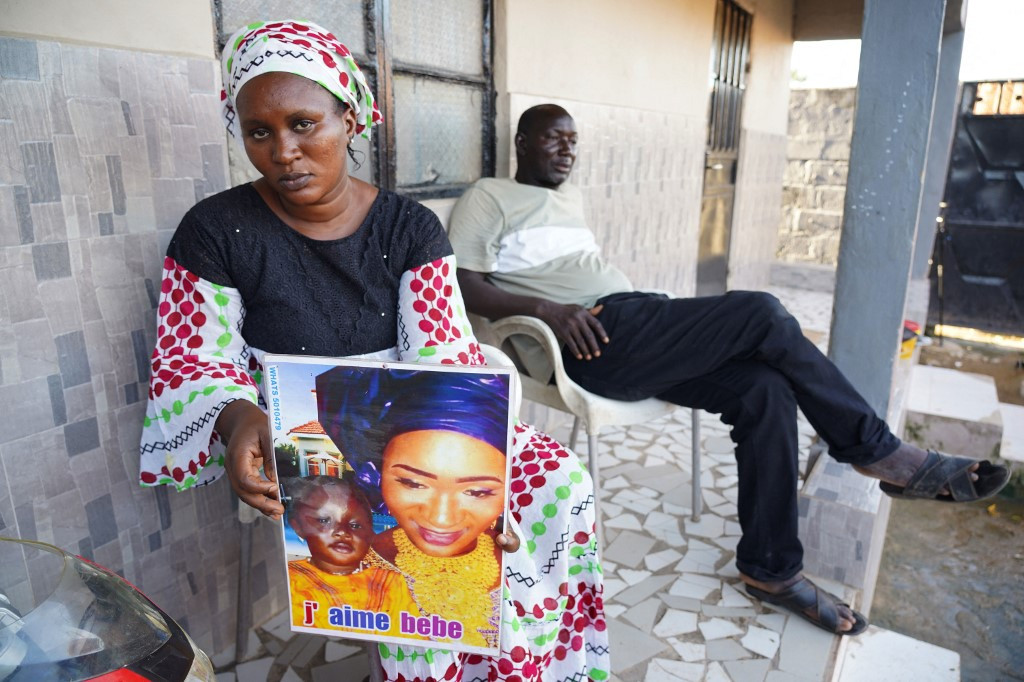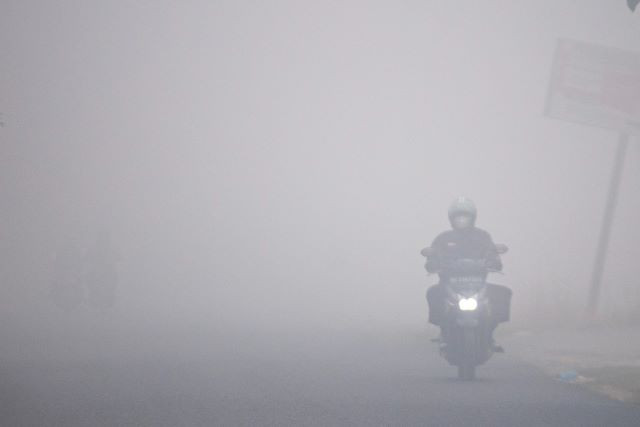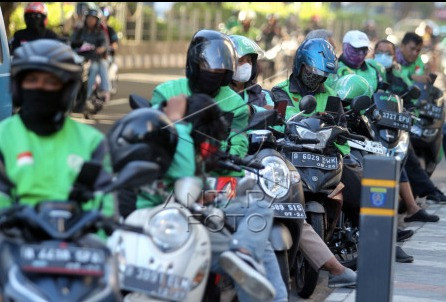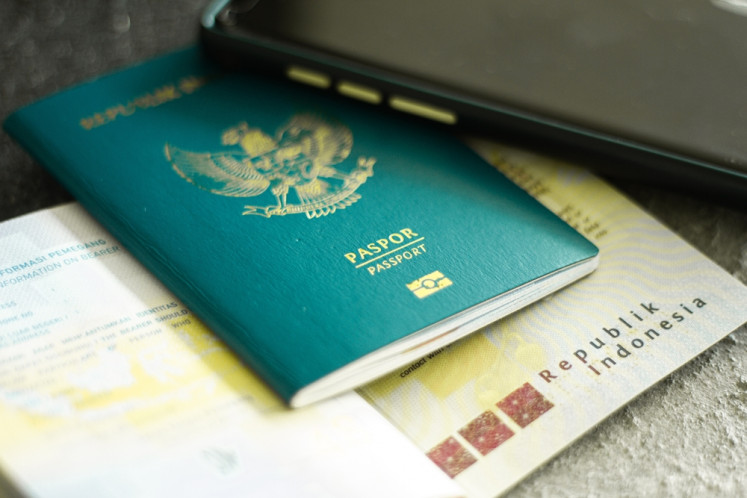Another mysterious disease
A special team set up by the Health Ministry is now investigating nearly 200 cases of acute kidney failure of unknown origin in 20 provinces, with most cases found in the capital.
Change Size
 Mariama Kuyateh, 30, holds up a picture of her late son Musawho died from acute kidney failure, in Banjul on Oct. 10.
Gambian police on Oct. 8 announced an investigation into four cough syrups made by the Indian Pharma company Maiden Pharmaceuticals, after the World Health Organization said they could be responsible for the deaths of 66 Gambian children, most under 5 years old. Nearly half of Gambia's population lives below the poverty line, according to the World Bank.
(AFP/Milan Breckmans)
Mariama Kuyateh, 30, holds up a picture of her late son Musawho died from acute kidney failure, in Banjul on Oct. 10.
Gambian police on Oct. 8 announced an investigation into four cough syrups made by the Indian Pharma company Maiden Pharmaceuticals, after the World Health Organization said they could be responsible for the deaths of 66 Gambian children, most under 5 years old. Nearly half of Gambia's population lives below the poverty line, according to the World Bank.
(AFP/Milan Breckmans)
W
e commend the government for taking swift action to address the mysterious acute kidney injury (AKI) that has killed at least 99 Indonesian children this year. The government has learned from the costs the country had to pay for the ignorance, if not denial, when COVID-19 spread its horror early in 2020.
It remains unclear, however, what exactly causes the kidney disease. A special team set up by the Health Ministry is now investigating nearly 200 cases of acute kidney failure of unknown origin in 20 provinces, with most cases found in the capital.
The first two cases were detected in January. The government then identified two more cases in March, six more in May, three more in June and nine more in July, before the figure spiked at 37 in August and 81 in September alone. This is an alarming trend, and it is a relief that the government has taken this new health threat seriously.
The Health Ministry, for example, has banned health workers from administering medicinal syrup products and pharmacies from selling them to children while it is investigating whether the cases are linked to similar cases found in Gambia, where nearly 70 children died from acute kidney failure after taking paracetamol syrups for treating fever made by a New Delhi-based pharmaceutical company.
The syrups contain “unacceptable” levels of diethylene glycol and ethylene glycol, which can be toxic, according to the World Health Organization (WHO).
The Food and Drugs Monitoring Agency (BPOM) said the syrups were not available in Indonesia, but it is possible that the two toxic ingredients had contaminated other materials that are used as solvents in other medicines sold in the country.
Doctors have also recommended that children with symptoms such as nausea, vomiting or diarrhea with a fever or cold and cough be rushed to a hospital or doctor for early detection.
Some epidemiologists have linked the disease to COVID-19 infection, but the ministry has so far ruled out that possibility, saying that it was now still examining the medicines used by the affected patients and their medical records.
This is the second mysterious global outbreak to have affected Indonesia after previously identifying possible cases of a mysterious hepatitis disease also among children.
We hope that the health authorities in Indonesia and the world could immediately identify the causes of this new mysterious disease so that we can take the right and necessary actions to prevent it from becoming another public health crisis.
As we are preparing to declare an end to the COVID-19 pandemic, we cannot afford to lose our vigilance. There is no question that COVID-19, which may spawn newer and more dangerous mutations, remains a threat for an indefinite time. And now we have learned that there are many other health threats that we should be aware of and swiftly mitigate.
An all-out but measured response is needed to these threats. When public health is at stake, there is no price too high to pay to keep each and every one of us safe, particularly the more vulnerable groups like our children.
We have dealt with COVID-19 before. We could and should do better.










